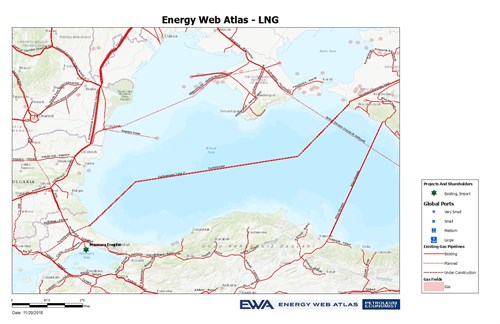Russia's Gazprom says offshore part of TurkStream is complete
ISTANBUL (Reuters) - Construction of the offshore part of the TurkStream pipeline that will carry Russian gas across the Black Sea to Turkey has been completed, Russian gas producer Gazprom said.
TurkStream is part of Moscow’s efforts to bypass Ukraine as a gas transit route to Europe, which imports around a third of its gas needs from Gazprom.
 |
“Projects of this kind and this project in particular are not directed against the interests of anyone. Projects of this kind are purely creative,” Russian President Vladimir Putin said as he and Turkish President Tayyip Erdogan attended an official ceremony in Istanbul.
Work will now focus onshore and is on track to be completed by the end of 2019, he said.
Gazprom is building the TurkStream in two lines, each with a capacity of 15.75 billion cubic meters of gas per year. The first will supply Turkey and the second southern Europe.
Turkey is almost completely reliant on imports to meet its energy needs. A crippling currency crisis which has seen the lira plummet has increased costs, prompting energy companies to hike consumer prices.
Turkey’s state pipeline operator Botas will build the 69-km section of TurkStream which will carry natural gas from the coast to its distribution center in Luleburgaz in northwestern Turkey, Energy Minister Fatih Donmez told private broadcaster NTV, adding he expected this to be completed in 2019.
A 145-km section of pipeline from the distribution center to the border will be constructed by Botas and Gazprom, he said.
Reporting by Olesya Astakhova and Ali Kucukgocmen; writing by Tom Balmforth and Polina Devitt; editing by Adrian Croft and Jason Neely

- RWE strengthens partnerships with ADNOC and Masdar to enhance energy security in Germany and Europe
- TotalEnergies and Mozambique announce the full restart of the $20-B Mozambique LNG project
- Venture Global wins LNG arbitration case brought by Spain's Repsol
- KBR awarded FEED for Coastal Bend LNG project
- Norway pipeline gas export down 2.3% in 2025, seen steady this year



Comments